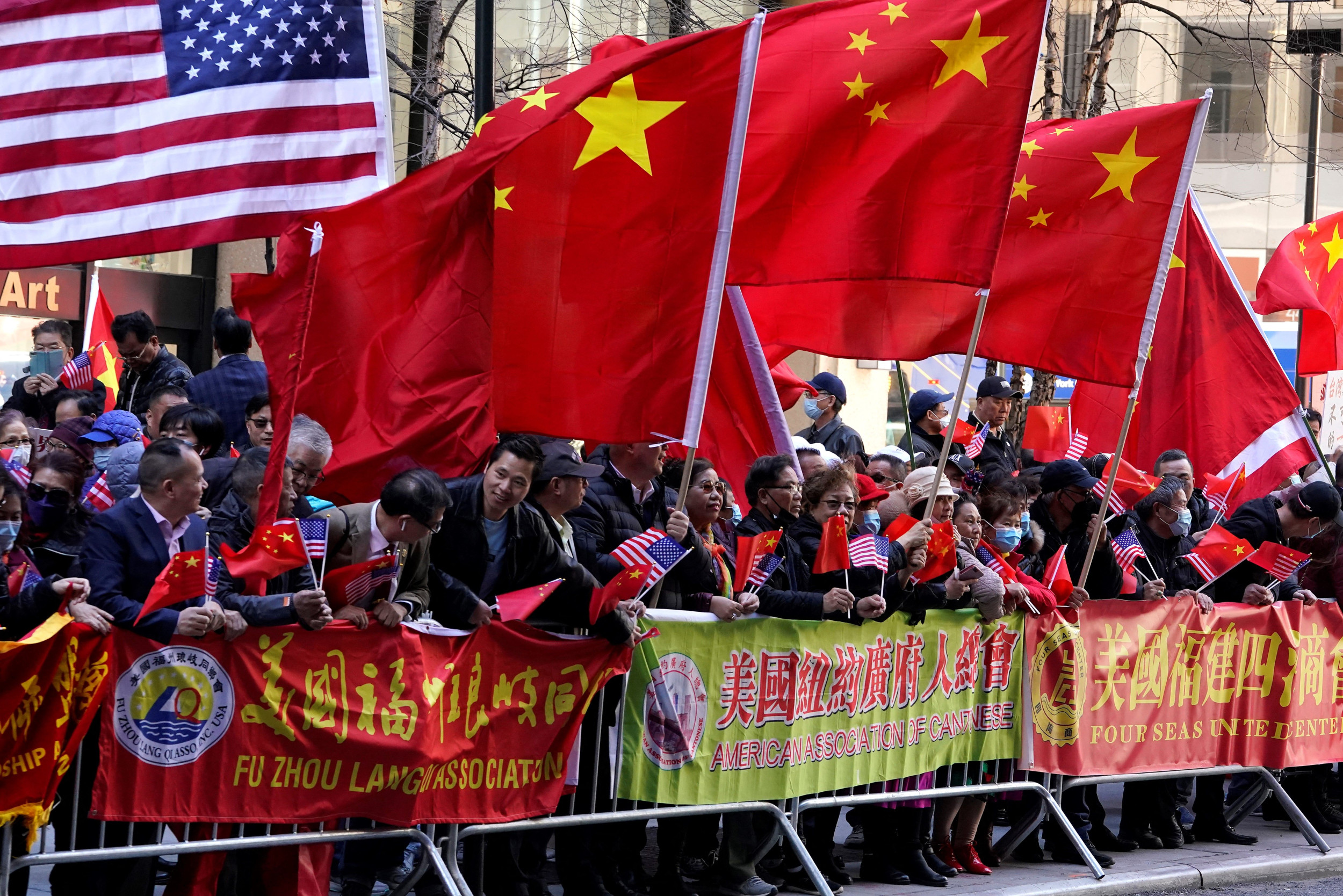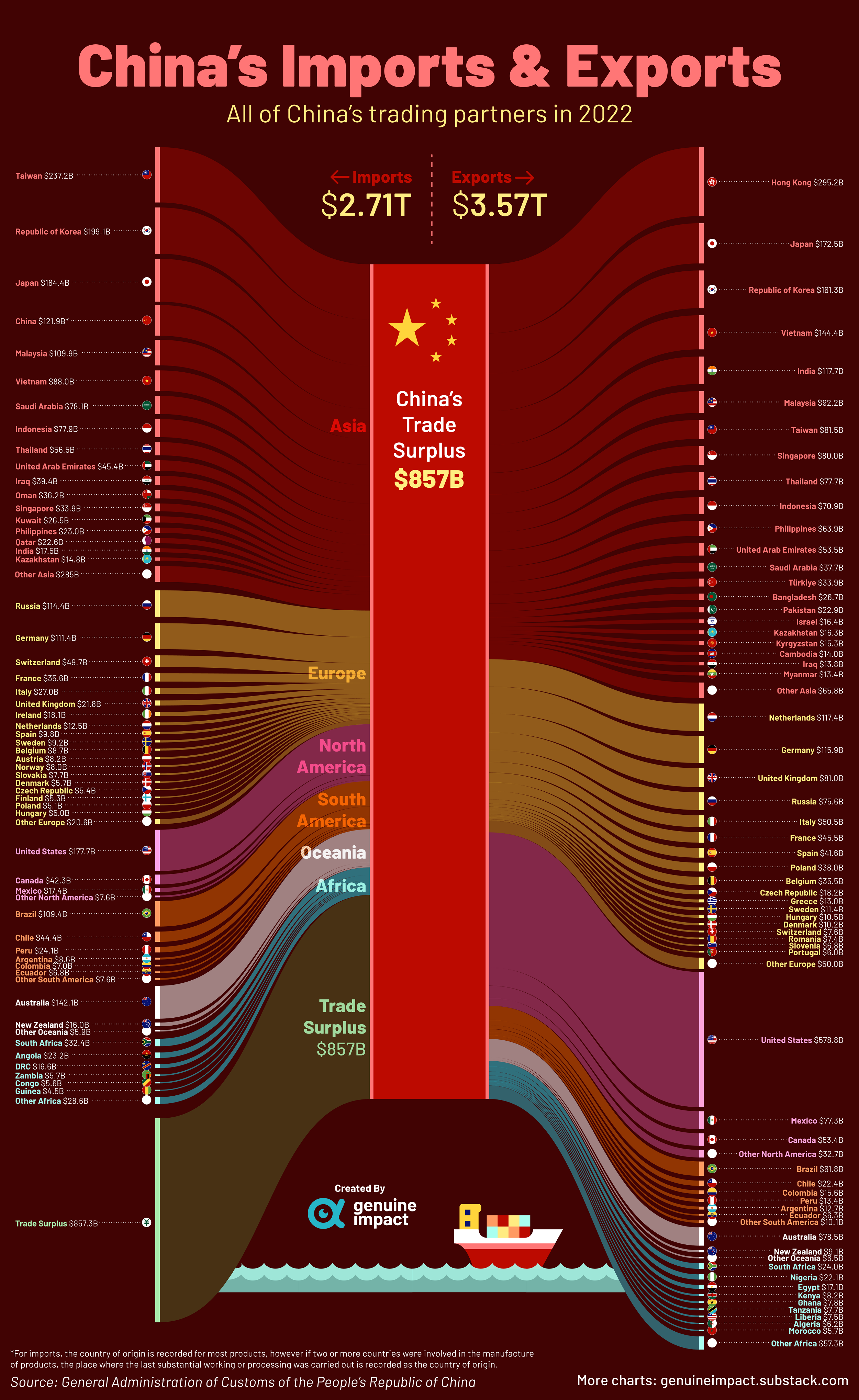There's recession, and then there's cutting out 20% of global GDP at a penstroke. This graph.
US directly has $756 billion, so that's a 3% direct hit to the US. Just about everyone we trade with also is trading with China, so everyone else is also likely to be in some manner of recession. Every company in the US is going to be lobbying to not put in a general blockade. Every business in most of the world is going to be arguing strongly against it.
Middle East is another big one there: 10 million barrels of oil per day trying to intercept is someone losing about $1 billion dollars a day. They are not going to like the US interfering with their gravy train, and likely are going to cut back production heavily in order to re-coup losses in volume and punish the west. Another energy crisis on top of the existing one in Europe is probably not appreciated. Lot of other raw material suppliers are going to have collapsing demand and thus probably collapsing prices followed by collapsing supply.
Lot of direct pain. I think people might be underestimating a bit just how much shit people are being asked to eat for Taiwan (a country most of them have agreed is part of China) to virtue signal to America, who many of them have some hostility to.
Entering a broad blockade is probably more crippling to the presidency, since it commits to an expensive, general war that if it doesn't go perfectly is going to require conscription and might lose the US Empire. Its also going to burn an immense amount of good will with most of our allies. Saudi Arabia already is very lukewarm on us. They are probably going to be very much not pleased if we enforce a blockade on Saudi Arabia that at least cuts off 10% of their GDP, and likely will hit 20-30% of it.
South Korea, Japan, and Taiwan are also not going to want to do a general blockade and would have to be dragged kicking and screaming to do so. And if any of those three don't sign off on it, it basically immediately fails. They would be asked to eat an immediate 20-30% GDP hit with just a general embargo on trade with China. If China launches a counter blockade, your talking about potential 50%+ of the GDP at risk, and obviously a full blockade puts Taiwan on the path to starvation.
If the US forces a general blockade and then doesn't win quickly and decively, your turning a defense pact into a suicide pact, and dramatically increases the chance of those three jumping ship.
A general blockade risks far more than a localized, restrained response.
Okay. So when you say rapidly, how quick are you seeing this occur? Because your committing a very small force against a very large area, against an enemy who' doctrine is to fight a people's gorilla war. As Yugoslavia and other conflicts have shown, destroying an air defense system trying not to die can take a lot of firepower and time.
Because if you move your ships out to where the Chinese can't easily observe the Carriers, you also can't easily observe the Chinese. Lets look at the 500 and 1,000 km radius pictures:
This basically suggests you will have no ships in the south China sea itself. So the Carriers are out past the Philippines, if the goal is to support Taiwan. This means long range radar from the shore (over the horizon radar can have 2,000-3,000) and other long range radar can still spot stealth aircraft, just not get good target locks. Though two carrier air wings your still at this point talking about f-18s, not F-35s generally, so two carrier wings is roughly 100 F-18s.
From the position out in the Philippine Sea, the AWACs attached to the carrier can see roughly through the yellow, but you have no direct real time observation into the red zone. This means you need to dedicate recon elements to even spot where the Chinese ships and aircraft are. SAM positions are also not going to be under constant surveillance and constant movement. You've also got now about 6,000 km for subs to sneak out through.
So, with Chinese forces a threat, Your practical strike package is greatly reduced. 100 Aircraft in this situation is probably 1-10 equipment casualties per day for the Chinese. Likely with some number of daily casualties too. Americans probably suffer something like something in the 0.1-1% casualties per sortie range, so between 0.1-1 casualty per day out of a force of a 100 aircraft, assuming nothing dramatic like the Carrier hitting a mine or falling into a trap.
All the Chinese Navy and Airforce technically have to do is not die and maintain a threat in being so the US Air Force and Navy can't be employed effectively, so other operations can be carried out and the US can be steadily attritted.
You seem to be implying a force now too small and too conservatively deployed to actually do all that much material damage in relavent time scales. And if you only have 100 planes, losing even 10 of them is going to be devastating to formation firepower.






